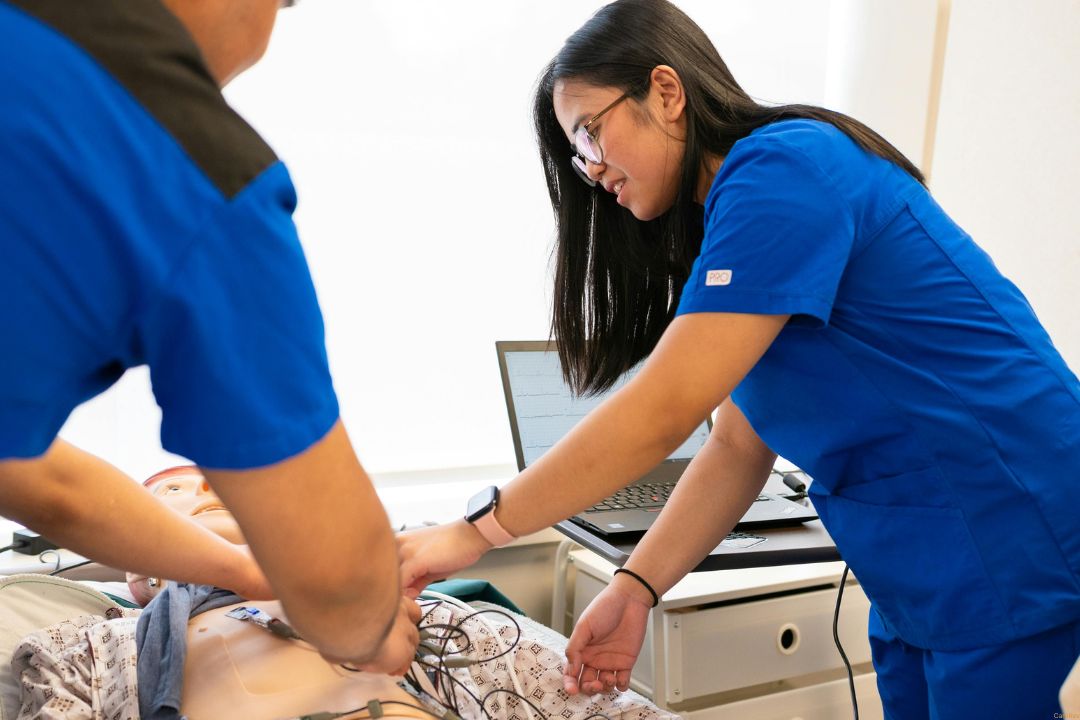
In the world of healthcare, where precision and teamwork are paramount, the role of a scrub nurse stands out as one of critical importance. Often working behind the scenes in the operating room (OR), scrub nurses play a vital role in ensuring the safety and success of surgical procedures. In this comprehensive blog, we'll explore the multifaceted role of a scrub nurse, their responsibilities, training, and the essential qualities that make them indispensable members of the surgical team.
What is a Scrub Nurse?
A scrub nurse, also known as a perioperative nurse or surgical nurse, is a registered nurse (RN) or licensed practical nurse (LPN) with specialized training in perioperative care. These highly skilled professionals work closely with surgeons, anesthesiologists, and other surgical team members to provide safe and efficient patient care before, during, and after surgery.
Responsibilities of a Scrub Nurse
The role of a scrub nurse is diverse and encompasses a wide range of responsibilities that can be categorized into several key areas:
Preoperative preparation:
- Scrub nurses prepare the OR by ensuring that all necessary surgical instruments and supplies are sterile and readily available.
- They verify patient identification and surgical site to prevent errors.
- Setting up the sterile field, which includes draping the patient and creating a sterile environment around the surgical site.
Assisting surgeons:
- Scrub nurses assist surgeons by handing them sterile instruments and supplies during the procedure.
- They anticipate the surgeon's needs, ensuring a seamless flow of instruments and equipment.
- Maintaining a meticulous surgical count of all instruments, sponges, and other materials used during the procedure to prevent foreign object retention.
Patient advocacy:
- Advocating for patient safety is a core responsibility. Scrub nurses are vigilant in monitoring patients' vital signs, ensuring they are stable during the surgery.
- They advocate for the patient's comfort and well-being, addressing any concerns or discomfort promptly.
Sterile technique:
- Scrub nurses adhere to strict aseptic techniques to maintain a sterile environment in the OR.
- They don sterile gowns, gloves, and other protective gear to prevent contamination.
Postoperative care:
- After the surgery, scrub nurses assist in the postoperative care of the patient, helping to transfer them to the recovery area while ensuring their safety and comfort.
Scrub Nurse training and qualifications
Becoming a scrub nurse requires a combination of education, training, and experience. Here are the essential steps to becoming a scrub nurse:
- Educational Background: Scrub nurses typically begin their careers by obtaining a nursing degree, either as a registered nurse (RN) or licensed practical nurse (LPN). This involves completing a nursing program and passing the appropriate licensure exam.
- Clinical Experience: To become proficient in perioperative nursing, nurses often gain experience in medical-surgical nursing or a related field before transitioning to the OR.
- Certification: Many scrub nurses pursue certification in perioperative nursing, such as the Certified Perioperative Nurse (CNOR) credential offered by the Competency and Credentialing Institute (CCI). Certification demonstrates a high level of expertise in perioperative care.
- Continuing Education: Perioperative nursing is a continually evolving field, and scrub nurses are encouraged to engage in ongoing education and professional development to stay current with best practices and advancements in surgical care.
Qualities of an effective Scrub Nurse
Beyond education and training, effective scrub nurses possess several qualities that enable them to excel in their roles:
- Attention to Detail: Scrub nurses must be meticulous in their work, ensuring that every instrument and supply is accounted for and that the sterile field remains uncontaminated.
- Communication Skills: Clear and concise communication with the surgical team is essential for the safe and efficient flow of the procedure.
- Calm Under Pressure: The OR can be a high-stress environment, and scrub nurses must remain calm and focused, even in emergencies or challenging situations.
- Team Player: Collaboration and teamwork are fundamental to the success of any surgical procedure, and scrub nurses are integral team members.
- Adaptability: Surgical procedures can vary widely, and scrub nurses must be adaptable and able to learn and assist with various types of surgeries.
In the intricate dance of the operating room, the scrub nurse plays a central role, ensuring that surgeries proceed smoothly and safely. Their meticulous attention to detail, sterile technique, and commitment to patient advocacy make them invaluable members of the surgical team.
The path to becoming a scrub nurse requires dedication, education, and ongoing training, but the rewards are immeasurable. Scrub nurses are not only skilled professionals but also compassionate advocates for the patients they serve, contributing significantly to the success of surgical interventions and the well-being of those in their care.
Want to learn about other in-demand healthcare professions? Explore more professions with shifts offered through the CareRev App.





